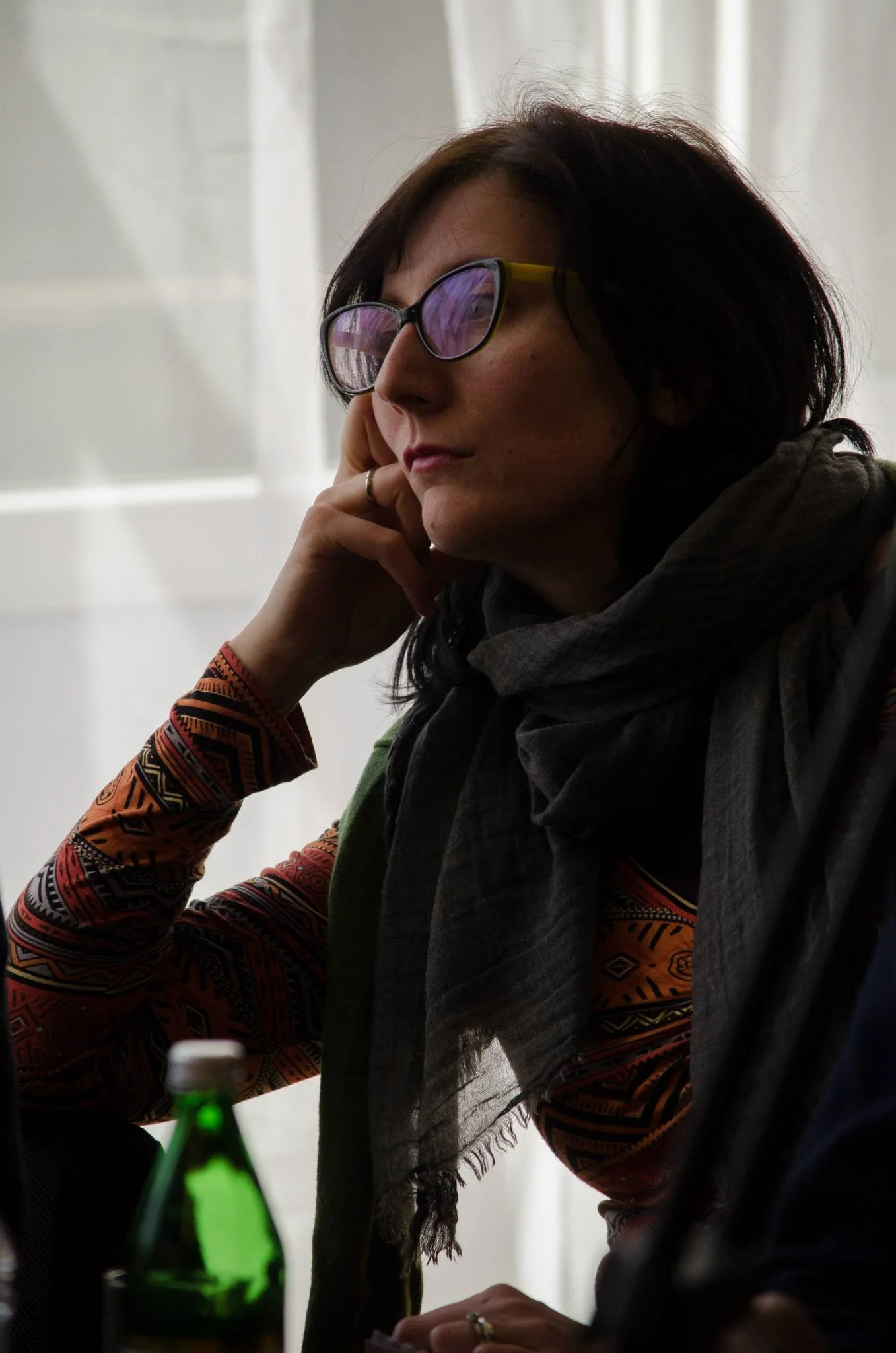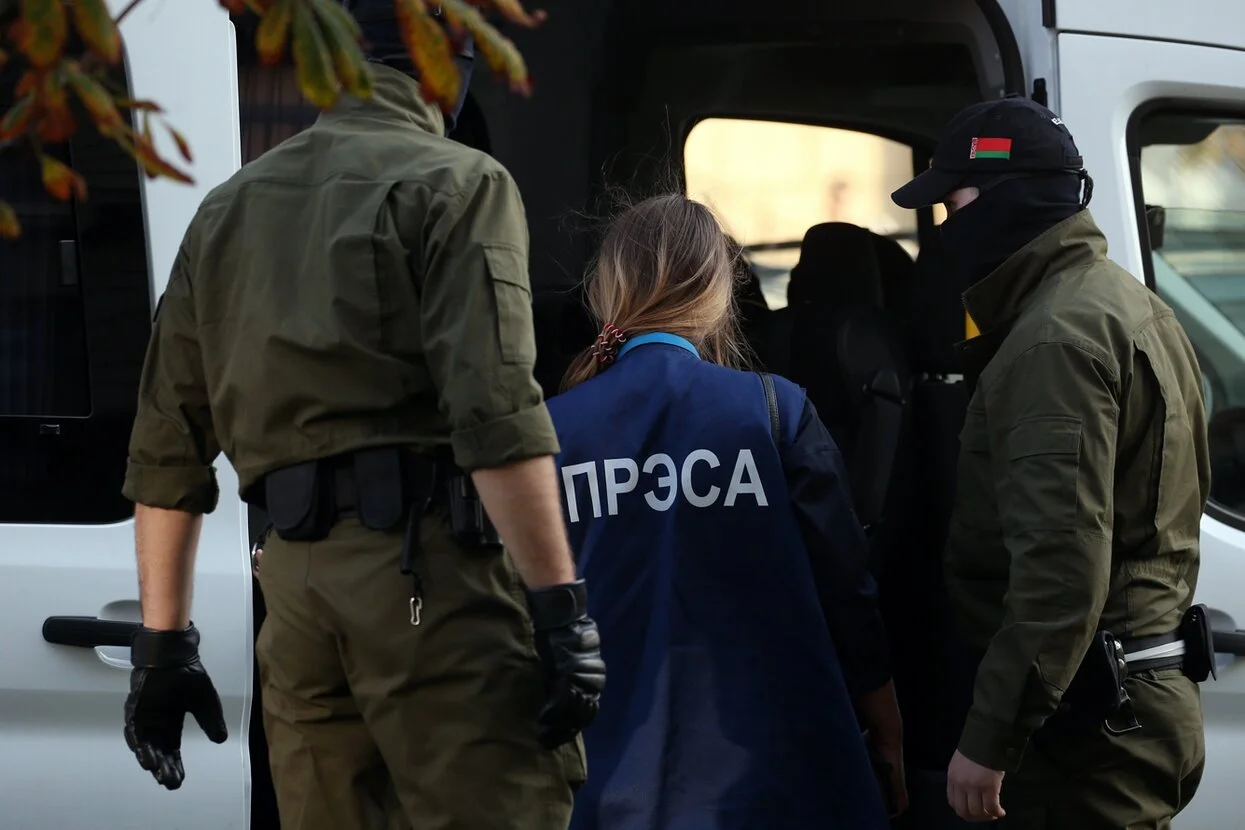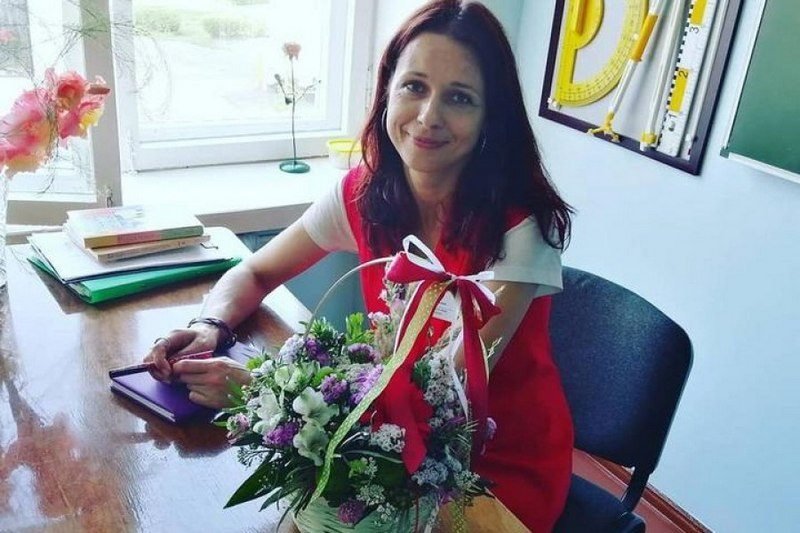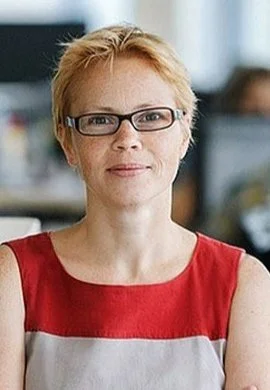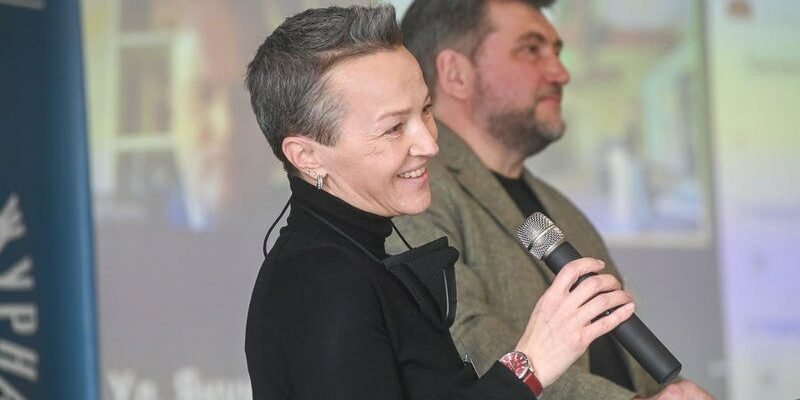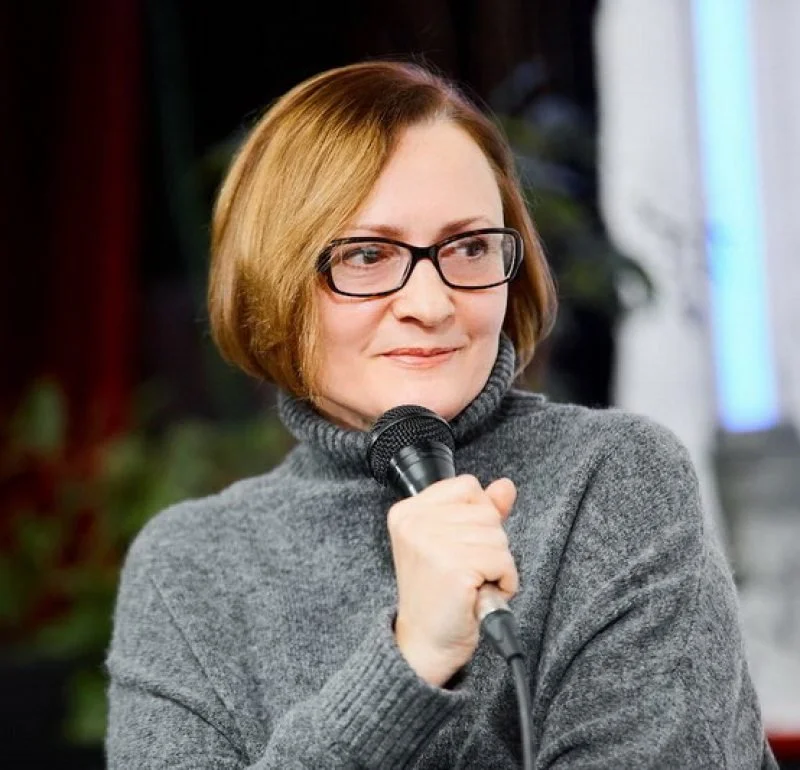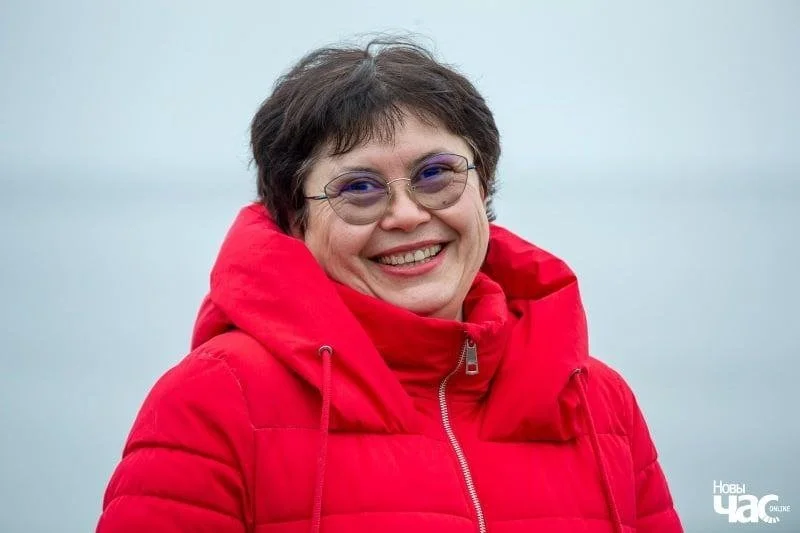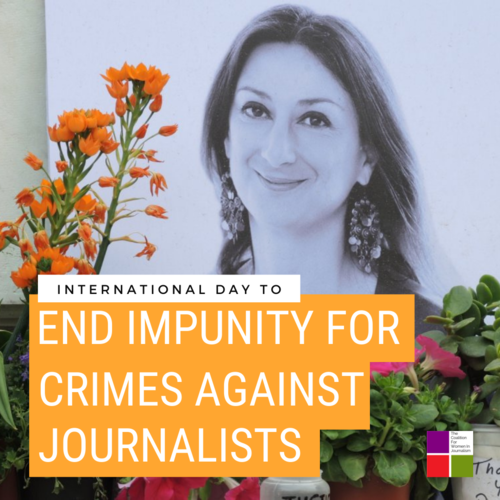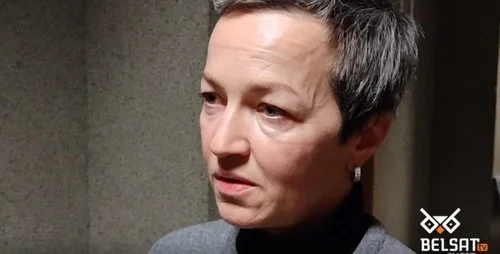Belarus: Women Press Freedom Welcomes Ksenia Lutskina’s Release After Presidential Pardon
Journalist’s health steeply deteriorated during four years behind bars
Location: Belarus, Minsk
Date: August 16, 2024
Women Press Freedom welcomes the long-overdue release of journalist Ksenia Lutskina, who was freed following a presidential pardon by Lukashenka, which included 30 prisoners. During her imprisonment Lutskina developed a brain tumor, Women Press Freedom continuously condemned her unjust treatment and demanded her release. While this may appear to be a gesture of leniency from Lukashenka, it fails to address the ongoing repression in Belarus. Journalists, activists, and opposition figures continue to be persecuted, with many still imprisoned or forced into exile. The release of these prisoners, many of whom are elderly or in poor health, highlights the inhumane conditions they endured, with their well-being used as a bargaining chip by the regime. Although Lutskina’s release is a relief, the broader issue of press freedom in Belarus remains troubling. True justice will only be realized when all political prisoners, including seven women journalists, are freed, and the repression of free speech ends.
During the ongoing Israel/Palestine conflict, the fundamental principles of press freedom have come under dire threat.
WPF vehemently condemns the targeting of Bangladeshi journalist Farzana Rupa who, along with her husband Shakil Ahmed, was detained after Sheikh Hasina's government was overthrown in August 2024. Charged with murder based on their journalism, they are part of a wider crackdown on journalists perceived as aligned with the previous regime. S
The Interior Ministry issues arrest warrants for at least 13 women and non-binary journalists.
On August 16, 2024, Belarusian President Aleksandr Lukashenka signed a decree pardoning 30 political prisoners, including Ksenia Lutskina, a former employee of the state-run Belteleradiocompany.
In 2022, Lutskina was sentenced to eight years in a penal colony for her involvement with the Coordination Council, a group formed during the 2020 protests against Lukashenka's regime. After joining a strike at Belteleradiocompany and resigning from her role as a correspondent for "Belarus 2," she collaborated with other former journalists to launch an alternative television channel on YouTube. Lutskina was detained on December 22, 2020, and her home was searched for four hours, with police seizing her devices and documents. She was charged with conspiracy to seize state power and later with large-scale tax evasion.
Lutskina’s release, though welcomed, came at a personal cost. While imprisoned, she developed a brain tumor and her health deteriorated.
In a statement to state TV following her release, Lutskina shared that petitioning for a presidential pardon was “the most difficult thing I have written in my life.” Nonetheless, she expressed joy at finally reuniting with her family, saying, “I will finally be able to hug my son.”
State-run media in Belarus have portrayed these pardons as acts of Lukashenka's benevolence, but human rights groups like Viasna emphasize that these releases do not indicate a reduction in political repression. In July 2024 alone, 170 people were convicted of politically motivated crimes, and around 1,400 political prisoners remain detained, including Nobel Peace Prize laureate Ales Bialiatski, protest leader Maria Kalesnikava, and Syarhey Tsikhanouski, the husband of opposition leader Sviatlana Tsikhanouskaya. According to Women Press Freedom’s documentation, seven women journalists remain imprisoned in Belarus — Katsiaryna Andreyeva, Lyudmila Chekina, Marina Zolotova, Valeria Kostyugova, Iryna Slavnikova, Alena Tsimashchuk and Larysa Shchyrakova .
“Every time I hear about women journalists being imprisoned or released, I first think about their health,” Belarusian journalist Nasta Pilyugina tells Women Press Freedom. “If they are released, I am always happy they can now rehabilitate and no longer endure torture. In Belarusian prisons, women often lose their sight and reproductive health, likely irreversible damage.”
While Women Press Freedom welcomes Ksenia Lutskina’s release, it shows just how dire conditions remain for those still incarcerated. Press freedom in Belarus remains under siege, and international pressure must continue to ensure the release of all journalists, activists, and opposition figures unjustly detained.
Belarusian President Aleksandr Lukashenka signed a decree pardoning 30 political prisoners, including Ksenia Lutskina, a former employee of the state-run Belteleradiocompany. Lutskina had spent four years behind bars..
WPF firmly stands in solidarity with Alena Timashchuk, who received a 5-year prison term on allegations of damaging Belarus' image, inciting hatred, and purported involvement in an "extremist formation."
CFWIJ and WPF is appalled by the recent criminal charges filed against exiled journalist Hanna Liubakova and 19 others who are currently residing abroad.
Belarusian authorities arrested two former journalists with Ranak TV, Yulia Dauletava and Liudmila Andzenka, while their colleague Alena Shcherbin is missing.
The Coalition For Women In Journalism expresses its shock and dismay at the sentencing of former Belsat TV reporter Larysa Shchyrakova.
KGB bans Justyna Prus from the country days after President Alyaksandr Lukashenka signs law allowing authorities to bar foreign correspondents.
Belarus authorities continue their oppression of journalists by detaining nine employees of local Svetlogorsk media outlet Ranak TV, including 5 women journalists.
Tatsiana Pytsko and her husband face years in prison for allegedly creating “extremist content.”
Border Guards deny entry to Belarusian journalist Elena Kovalchuk who had planned to attend the Lviv Media Forum.
TUT.by editor-in-chief Maryna Zolatava and CEO Lyudmila Chekina sentenced to 12 years in prison by the Minsk City Court.
Belarusian journalist Anastasia Sharkevich was detained by police. CFWIJ is alarmed at the video of her apparently “repenting” for her actions.
Yuliya Mudreuskaya becomes the latest Belarussian journalist to receive an absurd sentence from the authoritarian state.
A court in Minsk has ordered journalist Yekaterina Yanshina to 15 days in jail for “petty hooliganism”.
Darya Chultsova, 25, a Belarus journalist at Belsat TV was released after serving a full two-year sentence in a women’s penal colony in Gomel, southwestern Belarus.
Iryna Slavnikova, a former Belsat TV representative, was sentenced to 5 years in prison term amid a crackdown.
Belarusian journalist Katsiaryna Andreyeva was sentenced to eight years in prison on an alleged charge of treason.
At least three Belarusian women journalists stood trials this week as the government continues its onslaught on the independent press after mass protests.
Aksana Kolb was arrested on April 20, 2022, as authorities conducted a new wave of arrests of independent journalists and activists.
Imprisoned journalist Katsyaryna Andreyeva has been charged with “high treason” after a so-called secret investigation.
The police barged into the home of blogger Alena Yanushkouskaya’s adopted daughter to inquire about the journalist.
Gazetecilikte Kadın Koalisyonu (CFWIJ), dünyanın dört bir yanındaki kadın gazetecilere yönelik bütün tehdit ve saldırılar için Gazetecilere Karşı İşlenen Suçlarda Cezasızlıkla Mücadele Günü'nde bir kampanya başlattı. CFWIJ, çevrimiçi karalama kampanyalarıyla mücadele eden gazetecilere karşı işlenen suçlara yönelik yeni yasal düzenlemeler yapılması için çağrıda bulunuyor. Dünya genelinde 92 ayrı ülkeden kadın gazetecilerin karşı karşıya kaldığı zorlukları kaydeden CFWIJ, gazetecilerin güvenliğini sağlamak için caydırıcı tedbirler talep ediyor.
On this International Day to End Impunity for Crimes Against Journalists the Coalition For Women In Journalism extends support to women and LGBTQI journalists worldwide, who face mistreatment and abuse because of both their gender and their reportage. Disparaging attitudes towards gender in the society at large infiltrate the profession as well. As we call for an end to impunity against journalists, we must be cognizant that while attacks on journalists go unpunished, gendered attacks on women journalists often also go unnoticed. The CFWIJ stands to correct this. We stress on the impunity for gendered discrimination, and rhetoric, that women journalists face, not just in the field but at home, at the workplace and in society at large for this colors the kinds of violations they face.
Irina Slavnikova, a Belsat TV representative, was illegally detained at Minsk airport as she arrived with her husband from Egypt before being sent to prison for 15 days by court. Under charges of sharing “extremist” content on her social media, the journalist was held in temporary detention at Akrestsin Street in Minsk, along with her husband, and then moved to jail.
Belarus authorities have launched yet another criminal investigation against independent news agency Tut.by. This latest case is the continuation of the persistent legal harassment the Coalition For Women In Journalism has observed against the free press and freedom of information in the country. The Investigative Committee of Belarus announced on October 7 that a number of Tut.by staff members are being investigated for inciting public disorder. The CFWIJ is concerned as no specific number nor names of journalists against whom authorities are taking action have been given. We demand law enforcement authorities stop targeting independent voices and stop engaging them in one case after another. This persistent legal harassment is extremely concerning for the free press to thrive in the country.
State authorities searched the apartment of ex-TV broadcaster Katerina Pytleva on September 7. The journalist fled the country earlier this year after facing threats of a possible criminal case against her. The CFWIJ is alarmed by the persistent harassment of women journalists in the country. We have recorded several threats and violations against press freedom, particularly involving women journalists. The mounting threats to journalists under Lukashenko’s regime have created a repressive environment for press freedom. The CFWIJ urges the present government to break this pattern.
The editor of the "Green Portal", Yanina Melnikova was detained for 72 hours and yet not released. Security forces raided the journalist's house and took Yanina for interrogation. She is still under custody. The Coalition For Women In Journalism (CFWIJ) demands authorities to release her immediately. Journalism is not a crime.
Chief editor of BelaPAN news agency, Iryna Leushyna, was detained on August 18, along with accountant Katsyarana Boyeva and former director Dzmitry Navazlylau. Police searched the homes of staff members and also raided the agency’s offices in Minsk. The detainees were subsequently sent to prison. Reportedly, the news websites BelaPAN.by and BelaPAN.com have also been suspended since the raid.
The Supreme Court ruled to dissolve the Belarusian Association of Journalists (BAJ) on August 27 after closing a complaint filed by the Ministry of Justice. In the verdict, the court stated the arguments provided by the BAJ representative were not satisfactory. The decision maintained that the defence misunderstood the law. The CFWIJ stands in solidarity with the Belarusian Association of Journalists. The BAJ is an independent organization operating since 1995 and has gathered over 1300 members from the media sphere. The organization has earned an international reputation for its commitment to uphold press freedom.
Former journalist Ksenia Lutskina has been in prison for over eight months. Earlier, she was accused of large-scale tax evasion. Ksenia was first implicated in the investigation against the Belarusian Press Club, but she is now facing new criminal charges. There is little information about the case since the defense lawyer signed a non-disclosure agreement.
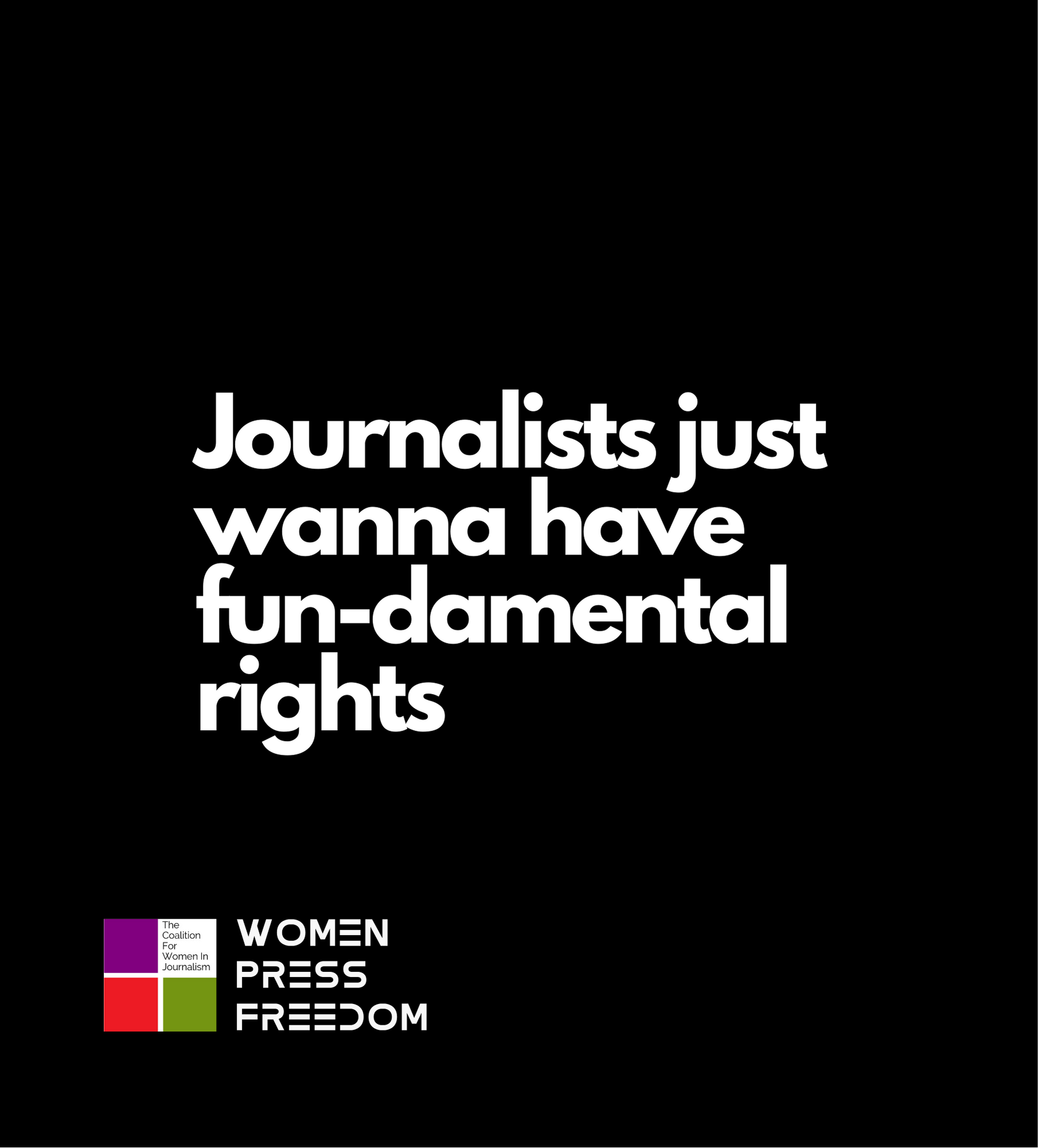
Women Press Freedom is an initiative by The Coalition For Women In Journalism
The Coalition For Women In Journalism is a global organization of support for women journalists. The CFWIJ pioneered mentorship for mid-career women journalists across several countries around the world and is the first organization to focus on the status of free press for women journalists. We thoroughly document cases of any form of abuse against women in any part of the globe. Our system of individuals and organizations brings together the experience and mentorship necessary to help female career journalists navigate the industry. Our goal is to help develop a strong mechanism where women journalists can work safely and thrive.
If you have been harassed or abused in any way, and please report the incident by using the following form.






